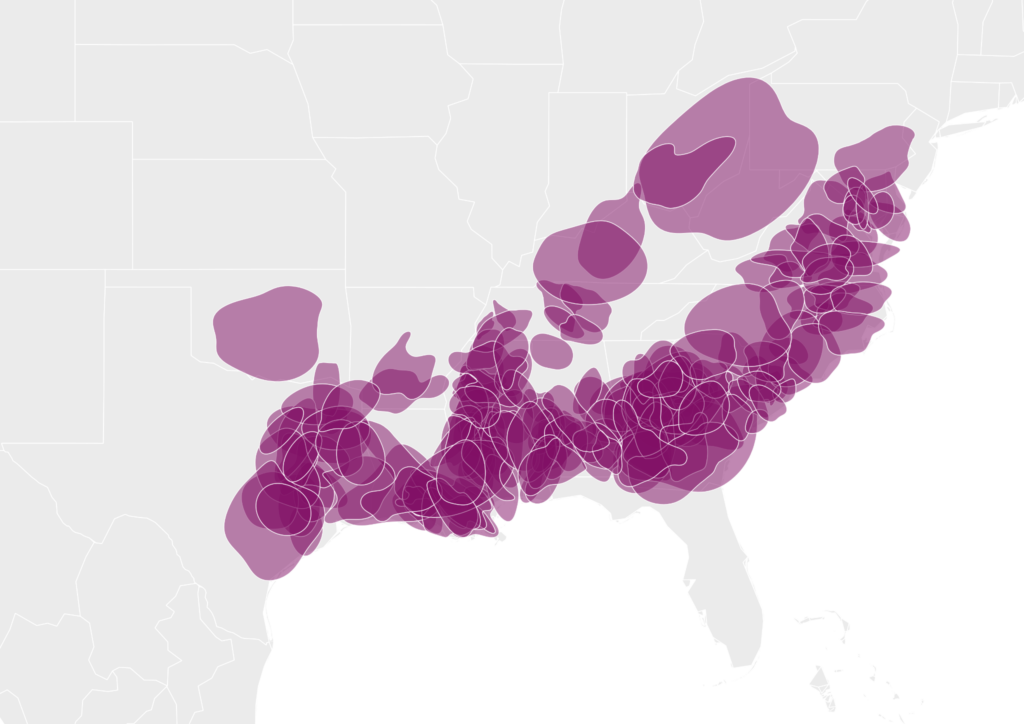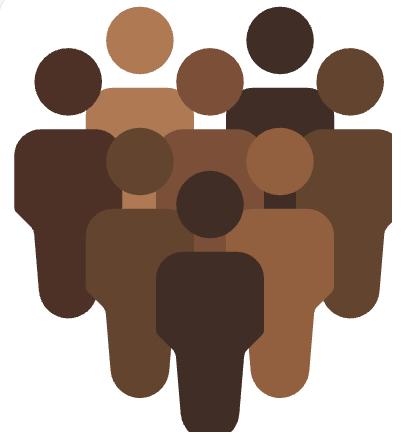Celebrating Black History Month with Ancestry, Health, and Research

As we kick off this Black History Month, it’s a powerful time to reflect on how science and technology can deepen our understanding of ancestry, improve health outcomes, and empower communities. Over the years, 23andMe has made an effort to ensure our product and research are relevant to those of African descent and we continue to make improvements in both what we deliver to our Black and African American customers and how we engage with those communities. Let’s take a look at how DNA testing can provide a deeper connection to your ancestral history, empower you with knowledge about health risks that disproportionately affect the Black and African American communities, and offer new opportunities for scientific research.
Ancestry: Uncovering African Heritage with 23andMe
Genetic Groups Across Africa and the Americas
23andMe offers some of the most detailed and comprehensive ancestry insights for people of African descent, helping you trace your roots back to African ethnolinguistic groups like the Yoruba, Igbo, Kongo, Mende, Kikuyu, and more. We also offer the ability to pinpoint over 150 regions across Africa, down to the country and even more local levels.

In the Americas the service also highlights over 200 Genetic Groups, including those tied to the Gullah, Creole, and other communities in the United States as well as 19 Afro-Caribbean Genetic Groups.

Tracing Maternal and Paternal Lineages
Additionally, 23andMe is the only leading DNA testing service that offers detailed information on both your maternal and paternal lineages through haplogroups, connecting you with ancient peoples and places. You can even learn if you share an ancient maternal line ancestor with famous historical figures such as Nelson Mandela, Pharaoh Rameses III of Egypt, and more.
Health: Empowering Communities with Genetic Insights
Health is a critical area where genetic testing can make a real difference, and 23andMe is committed to providing reports of value to Black and African American communities. We offer over 110 health reports, many of which focus on conditions that, while they can affect anyone, disproportionately affect these communities.
Some Key Health Reports for Black and African American Communities
These are just some of the reports that provide personalized insights based on your DNA.
- Sickle Cell Anemia Carrier Status report
- Chronic Kidney Disease (APOL1-Related) Genetic Health Risk report
- Preeclampsia Polygenic Risk Score report
- Type 2 Diabetes Polygenic Risk Score report
With this knowledge, you can take steps to manage your health more effectively. Personalized suggestions offer tools to help you prevent, monitor, or manage these health risks, ensuring that you’re not only aware of potential issues but also equipped to take control of your well-being.
Research: Advancing Health Equity Through Participation
Addressing Disparities in Genetic Research
23andMe is proactively building a more representative community of researchers and participants to improve research equity and health outcomes for Black Americans. There are several initiatives that focus on diseases that disproportionately impact people of African descent:
Key Initiatives Within the Black Community
- Sickle Cell Carrier Status Awareness — In collaboration with various academic and advocacy organizations—including Sickle Cell Foundation of Georgia, Breaking the SSickle Cell Cycle, and Morehouse School of Medicine— this program empowers people to learn their sickle cell carrier status, promotes sickle cell disease awareness, and offers resources to those with sickle cell trait and sickle cell disease.
- Research on Sickle Cell Trait (SCT) — A collaborative study with Johns Hopkins University School of Medicine and the National Institutes of Health, published in Blood Advances and involving 4 million research participants, revealed that sickle cell trait (SCT) increases the risk of pulmonary embolism but not deep vein thrombosis. This suggests a unique clotting mechanism in SCT individuals. The findings, consistent across genetic backgrounds, may improve medical advice. We are now investigating SCT’s potential link to blood clots during pregnancy.
- Representation in Sarcoidosis Research Study — Helped increase the likelihood that potential sarcoidosis treatments can be effective in people with African ancestry, and other underrepresented groups, in partnership with the Foundation for Sarcoidosis Research and the Bernie Mac Foundation.
- BRCA1/BRCA2 (Selected Variants) Report Updates — Bringing awareness and access to our updated report, which now accounts for 30-40% of cancer-related BRCA1/BRCA2 variants in African Americans, in collaboration with AfroPink®.
- Genetic Insights into Colorectal Cancer in the Black Community — A study aimed at bringing our Black and African American customers a genetic report on their chances of developing colorectal cancer in partnership with the Colorectal Cancer Alliance.
These efforts are about more than just furthering research; they’re about making sure we build long-term, ongoing partnerships within Black community to improve access to genetic health information, participation in genetics research, and improve overall health outcomes.
Building on Progress
Throughout this Black History Month, we’ll return to dive deeper and celebrate the ancestry, health, and research work being done at 23andMe that impacts people of African descent. We’ll take a deeper dive into heritage, taking proactive steps towards better health, or contributing to groundbreaking research that can improve outcomes for generations to come.
The 23andMe PGS test includes health predisposition and carrier status reports. Health predisposition reports include both reports that meet FDA requirements for genetic health risks and reports which are based on 23andMe research and have not been reviewed by the FDA. The test uses qualitative genotyping to detect select clinically relevant variants in the genomic DNA of adults from saliva for the purpose of reporting and interpreting genetic health risks and reporting carrier status. It is not intended to diagnose any disease. Your ethnicity may affect the relevance of each report and how your genetic health risk results are interpreted. Each genetic health risk report describes if a person has variants associated with a higher risk of developing a disease, but does not describe a person’s overall risk of developing the disease. The test is not intended to tell you anything about your current state of health, or to be used to make medical decisions, including whether or not you should take a medication, how much of a medication you should take, or determine any treatment. Our carrier status reports can be used to determine carrier status, but cannot determine if you have two copies of any genetic variant. These carrier reports are not intended to tell you anything about your risk for developing a disease in the future, the health of your fetus, or your newborn child’s risk of developing a particular disease later in life. For certain conditions, we provide a single report that includes information on both carrier status and genetic health risk. Warnings & Limitations: The 23andMe PGS Genetic Health Risk Report for BRCA1/BRCA2 (Selected Variants) is indicated for reporting of 44 variants in the BRCA1 and BRCA2 genes. The report describes if a person’s genetic result is associated with an increased risk of developing breast cancer and ovarian cancer and may be associated with an increased risk for prostate cancer, pancreatic cancer, and potentially other cancers. The variants included in this report do not represent the majority of the BRCA1/BRCA2 variants in people of most ethnicities. This report does not include variants in other genes linked to hereditary cancers and the absence of variants included in this report does not rule out the presence of other genetic variants that may impact cancer risk. This report is for over-the-counter use by adults over the age of 18, and provides genetic information to inform discussions with a healthcare professional. The PGS test is not a substitute for visits to a healthcare professional for recommended screenings or appropriate follow-up. Results should be confirmed in a clinical setting before taking any medical action. For important information and limitations regarding each genetic health risk and carrier status report, visit 23andme.com/test-info/




